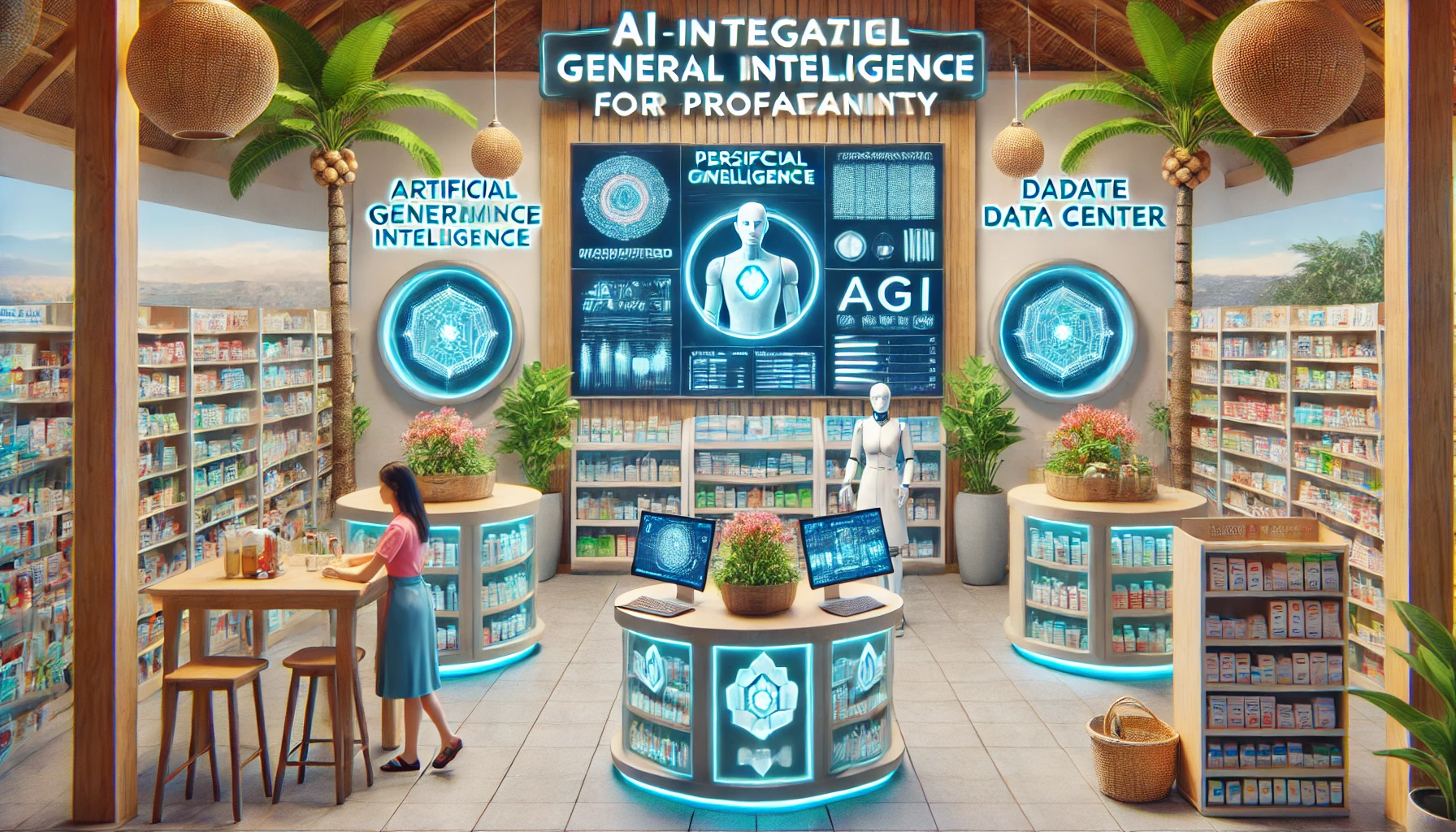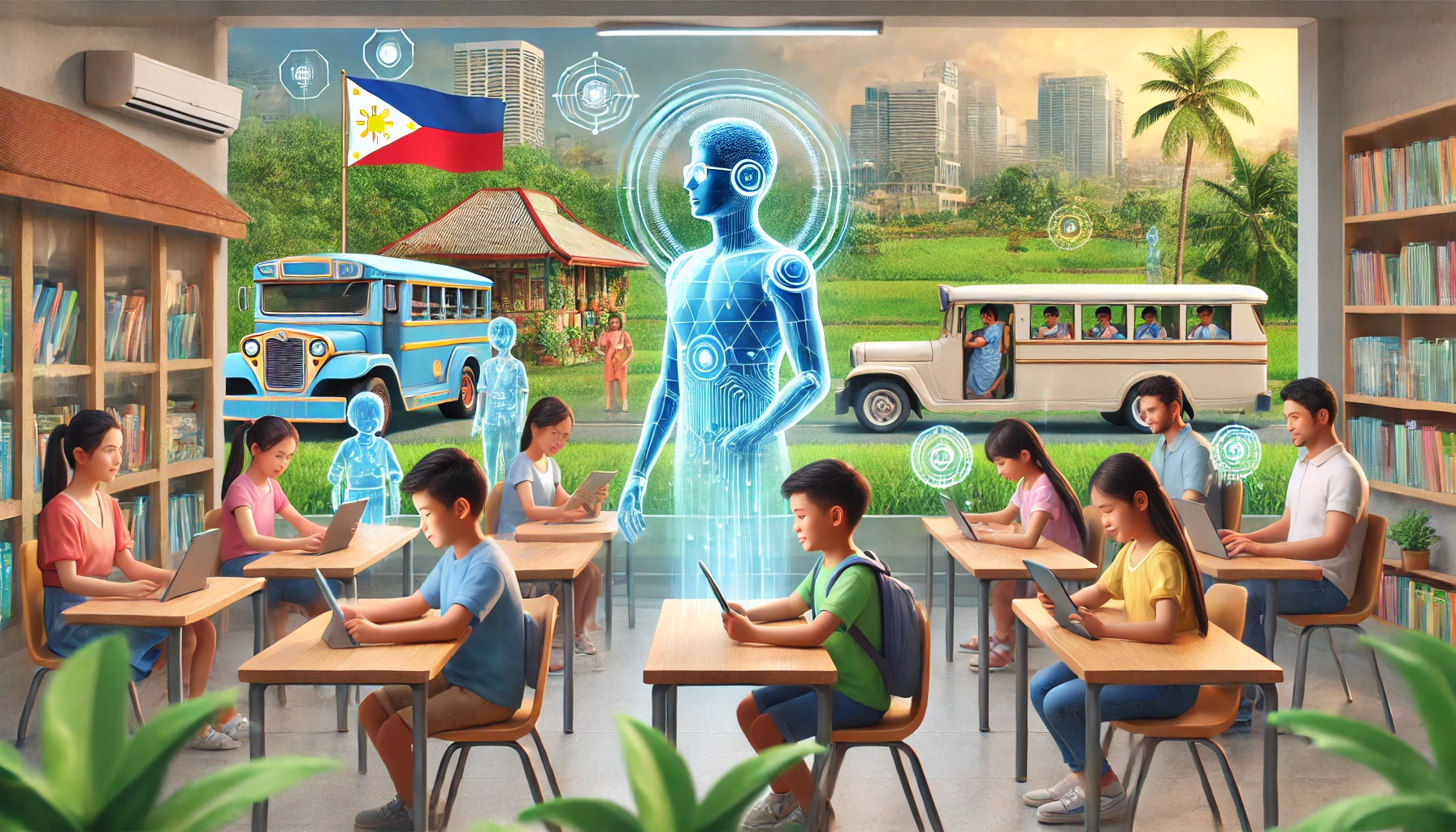In an era defined by rapid technological advancements, Artificial General Intelligence (AGI) is emerging as a revolutionary force across industries. For pharmacies in the Philippines, leveraging AGI could present transformative opportunities to improve operations, enhance customer service, and increase profitability.
What is AGI?
AGI refers to AI systems with the capability to perform any intellectual task a human can do. Unlike narrow AI, which excels in specific tasks like inventory management or chatbot responses, AGI can adapt to a wide range of challenges, making it an ideal partner for complex and dynamic environments like the pharmaceutical industry.
Opportunities for Pharmacies to Profit from AGI
1. Personalized Customer Experience
AGI-powered systems can analyze customer data to recommend personalized health solutions, including medications, supplements, and lifestyle advice. These insights can lead to higher customer satisfaction and loyalty, ultimately boosting sales.
Example Application:
- A customer frequently purchases antihistamines. The AGI system can suggest related products like air purifiers or vitamin supplements to enhance their well-being.
2. Efficient Inventory Management
Managing inventory is a critical challenge for pharmacies. AGI can analyze purchasing patterns, seasonal demand, and local health trends to optimize inventory levels, reducing waste and ensuring that high-demand medicines are always available.
Key Benefits:
- Minimized losses from expired stock.
- Improved availability of high-demand medications during outbreaks or emergencies.
3. Predictive Analytics for Market Trends
AGI can process vast amounts of data from public health records, social media, and other sources to predict upcoming trends in medicine and health care. This enables pharmacies to stay ahead of demand, stock new products, and offer relevant promotions.
Potential Scenarios:
- Preparing for dengue season by stocking up on repellents and fever management supplies.
- Anticipating surges in cold medicine sales during the rainy season.
4. Streamlined Operations and Cost Reduction
AGI-powered systems can automate routine tasks such as billing, inventory checks, and compliance reporting. This reduces operational costs and frees up human staff to focus on more value-added activities like customer engagement.
Use Case:
- An AGI chatbot handles customer queries about medication availability or side effects, allowing pharmacists to dedicate more time to complex consultations.
5. Improved Health Outcomes and Community Trust
By providing accurate, data-driven health advice, AGI systems can help customers achieve better health outcomes. This builds trust within the community and reinforces the pharmacy’s reputation as a reliable health partner.
Example:
- An AGI assistant helps customers manage chronic conditions by sending reminders for medication refills and offering dietary recommendations based on individual needs.
Overcoming Challenges
Regulatory Compliance
Pharmacies must ensure that AGI systems comply with local regulations, such as the Data Privacy Act of the Philippines and health-related laws.
Initial Investment
Implementing AGI technologies requires an upfront investment. However, the long-term cost savings and revenue growth can justify the expense.
Staff Training
Employees must be trained to work alongside AGI systems, ensuring smooth integration and maximizing the technology’s potential.
A Vision for the Future
The adoption of AGI by pharmacies in the Philippines could redefine the pharmaceutical landscape. From personalized care to operational efficiency, AGI offers a myriad of benefits that can drive profitability while enhancing the quality of service. By embracing this technology, pharmacies can not only improve their bottom line but also make significant contributions to the health and well-being of their communities.
Conclusion: AGI is no longer a distant future—it’s an imminent reality. For pharmacies in the Philippines, investing in AGI technologies today could secure a competitive edge and pave the way for a sustainable, tech-driven future in healthcare.
[SEO optimized]


